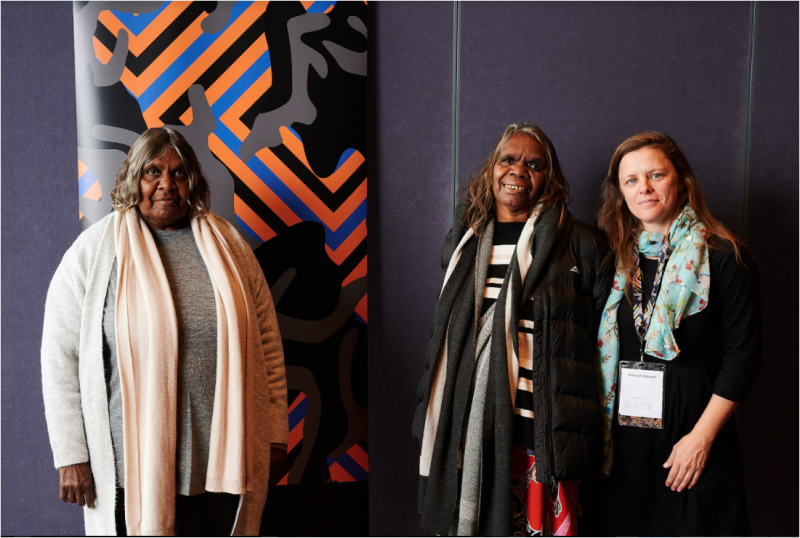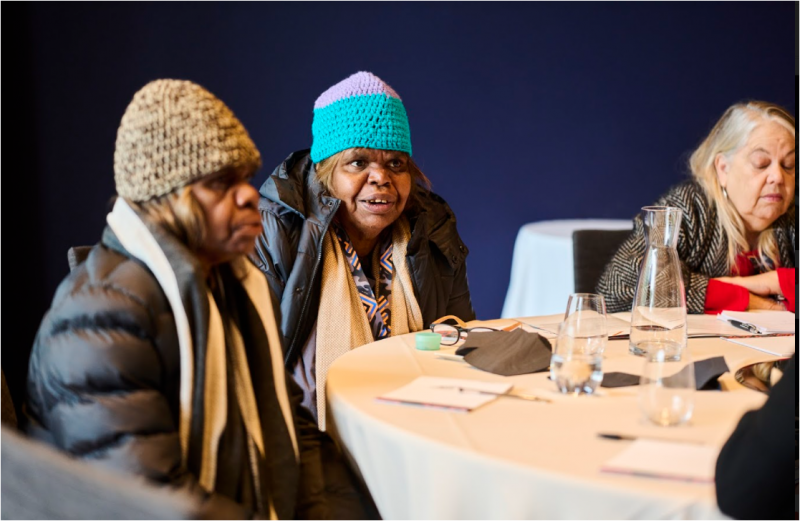The fight for two-way learning
The world recognises that Anangu have rights to learn in in their first language, and the right to govern the education systems that their children and young people access. Our Directors and Members work tirelessly for a more culturally relevant curriculum, more Anangu teachers and seek input into how schools recruit in their communities.
“Education is the key. Young people can become leaders and teach other people. Young people need to respect the culture and ensure two-way learning. We need to keep two ways culture, don’t let it go because of education, you’ve got to still have your culture”.
Daisy Ward
It is vital that young people learn in their first language and that they can grow strong in both cultures.
Access to education is a human right: It is recognised in the United Nations Declaration of Human Rights – Article 26 – Everyone has the right to education and parents have a prior right to choose the kind of education that shall be given to their children. It is clear also, in the United Nations Declaration on the Rights of Indigenous Peoples that Indigenous peoples have the:
- Rights to establish and control their educational systems and institutions
- Right to access an education in their own culture and provided in their own language

Director, Maureen Baker, Director, Rene Kulitja & NPYWC Youth Service Manager, Christine Williamson at the AITSL Conference in Canberra
Anangu understand the importance of this declaration and the benefits it has to children and young people. Most importantly, it recognises the right to education in their own language, a right that was experienced by many senior Anangu in the NPY region during the 1970’s and 1980’s.
We are seeking a just and fair education system that supports their children and young people to grow up strong, to determine for themselves their pathway to a future that is filled with opportunity both in mainstream Australian society, and in Anangu society. We seek choice and support for keeping two-way learning strong.
We need more Anangu qualified teachers and make sure Anangu participate meaningfully in recruitment and appraisals of principals in their own communities.

Directors Rene Kulitja & Nyunmiti Burton in Canberra
We are working hard to actualise these priorities and rights. This includes working with the following partners:
- Australian Institute for Teaching and School Leadership (AITSL) to review and recommend standards for ‘Indigenous cultural competency in the teaching workforce: National Dialogue’.
- Department of Education, Skills and Employment to advocate for the above identified priorities and increased resourcing for boarding school support and place based initiatives designed and implemented by Aboriginal organisations and communities.
- Indigenous Education and Boarding Australia – advocating boarding school students needs and provide recommendations on standards for boarding school that support Anangu students while away from their families
- NPY Empowered Communities Secretariat (NPY EC) – working with NPY EC to identify transition from school to work pathways and better data sharing
- Ngaanyatjarra Lands Schools – working with the schools to promote attendance and support student’s well-being.
- Recent submission into the ‘Parliamentary Inquiry into Education in Remote and Complex Environments 2019 – 2020’.
- Partnering with King & Wood Mallesons (KWM) to co-design an education and employment strategy for NPY Women’s Council.

